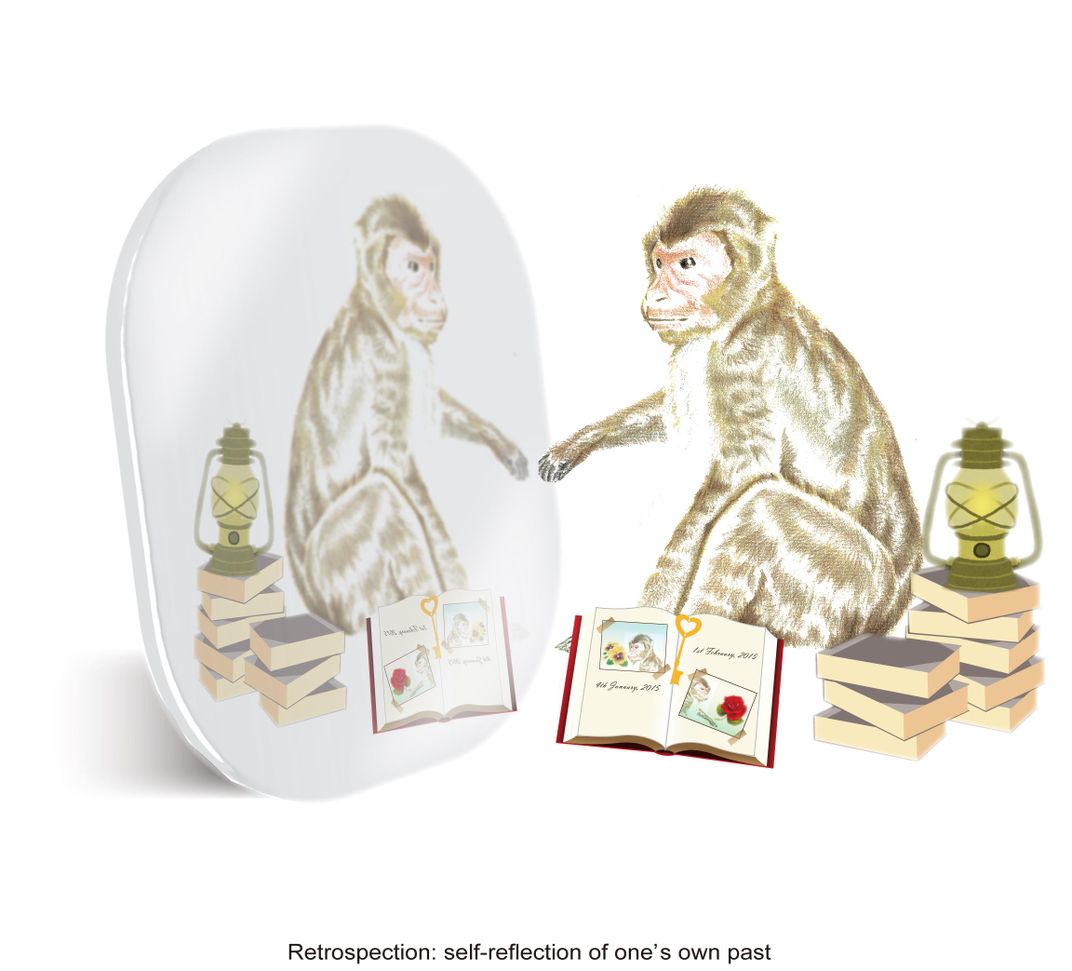A Wise Monkey Knows How Little He Knows
Japanese scientists find that macaque monkeys, like humans, know the limits of their own memory
/https://tf-cmsv2-smithsonianmag-media.s3.amazonaws.com/filer/38/ee/38ee7aaa-abbb-4c60-b959-4b1c5c8c6989/axgpay.jpg)
Knowing one's limits can be a strength. Just ask Socrates, whose famous paradox is often summed up in the phrase: "I know one thing: that I know nothing."
But introspection isn't just reserved for bearded Greek philosophers or moody teenagers wearing black. Humans are constantly examining their own thoughts, memories and abilities throughout the day. These "confidence judgments" help us judge what we need to do: For instance, you’d pull out your GPS or check Google Maps if you weren't sure of navigation abilities, and you might go back and check the stove again if you couldn't remember whether you turned it off.
And knowing what you know and don’t know isn’t just useful for humans. Williams College psychologist Nate Kornell gives an example of monkey social dynamics: In a typical troop of monkeys, some individuals will be more dominant than others, he says, and the others must know to treat those monkeys with deference or risk getting attacked or exiled. If Monkey A isn't certain of the dominance of Monkey B, then Monkey A must interact cautiously with Monkey B until he establishes the proper dynamic between them.
Monkey A recognizing the uncertainty of what he knows is a confidence judgment: He must step back and look in on his own memory to evaluate it. "A monkey that can distinguish between when their memories are accurate and when their memories are inaccurate is going to be much better at getting along with the other monkeys in the troop," Kornell says. "Those are confidence judgments, and evolutionarily, being able to make those accurately is a big advantage."
This ability to judge the limits and capabilities of one’s own memory is known as metamemory, and a new study sheds light on how it works in the brain. Scientists know that primates—and possibly other animals such as rats or birds—display some form of metamemory ability. For example, a bird may choose to not waste time searching an area for food if it’s more certain that another area has food. However, so far no one has been able to pinpoint what part of the brain is involved in this crucial process.

To find out, University of Tokyo physiologist Kentaro Miyamoto and collaborators showed two adult macaque monkeys a series of images. Then, they asked the monkeys to answer "yes" or "no" about whether they had seen these images before, using a joystick and a screen. After they chose their answer, the monkeys were then asked to "bet" on how confident they were in their answer. Monkeys that bet high on their memory and were correct received a large reward of juice, while the monkeys that bet low and were either correct or incorrect received a small reward of juice. Monkeys that bet high and ended up being incorrect received no reward and were forced to wait extra time before playing again.
"In this parlance, the monkeys can ‘report’ their own metamemory state," Miyamoto says.
After the macaques were trained to play this game, the researchers put them into an MRI machine and scanned their brains while they played it. When they compared how the monkeys' brains looked when they made low bets versus high bets, they pinpointed two specific brain areas that appeared to play a role in metamemory, according to the study published yesterday in the journal Science.
However, MRI scans are tricky to analyze, because it's not always clear if the area “lighting up” during an activity is doing so specifically for that purpose, Miyamoto cautions. So he and his collaborators decided to go a step further, and see if they could actually "turn off" those brain areas.
After injecting a drug into the monkeys' brains that temporarily inactivated the specific brain area the researchers then had them play the same game again (this anesthetized procedure was approved by the university’s animal welfare committee). The monkeys' memory abilities stayed roughly the same, but their ability to bet accurately on how well they remembered suffered significantly.
This extra step of proving that the two brain areas affected metamemory is what makes this study so exciting, says Kornell, who was not involved in the research. “The data are striking,” he says. "If I wasn't a respectable, distinguished person, I would use curse words to describe these results, because they're amazing.”
Miyamoto says that this new technique will pave the way for the study of metamemory in other animals, and even humans—and will allow researchers to look more closely at the different types of metacognition. He and his team plan to look next at how these monkeys and other animals judge their own perception or emotions, and what brain areas might be in play there.
Perhaps soon, we’ll also know where we know what little we know.